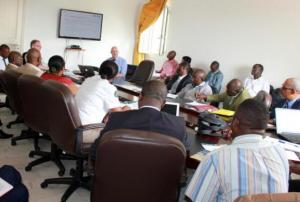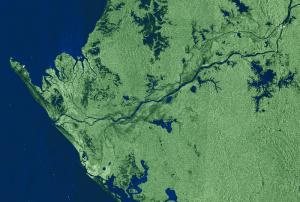At the invitation of the Government of the Republic of Gabon, UNOOSA successfully organized a Technical Advisory Mission (TAM) to Libreville from 7 to 11 December 2015.
A team of five experts from UNOOSA, UNEP, GEO Secretariat, RECTAS and Germany, also supported locally by the representative of the ESA and CNES in Gabon, have met with staff of the Ministries of Interior, Public Security and Immigration, Infrastructure, Habitat and Planning, Health, Defence, Energy and Hydraulic Resources, the Gabonese Petroleum Products Enterprise as well as the Gabonese Space Agency AGEOS, the Gabon Red Cross and the General Direction of Civil Protection (DGPC), to assess the use of space technologies in disaster management in the countries as well as the related needs and gaps. Field visits were also organized to the AGEOS Direct Satellite Receiving Station and to the ESA Tracking and Telemetry Satellite Station near Libreville.
A national workshop with about 45 participants from all…
more


